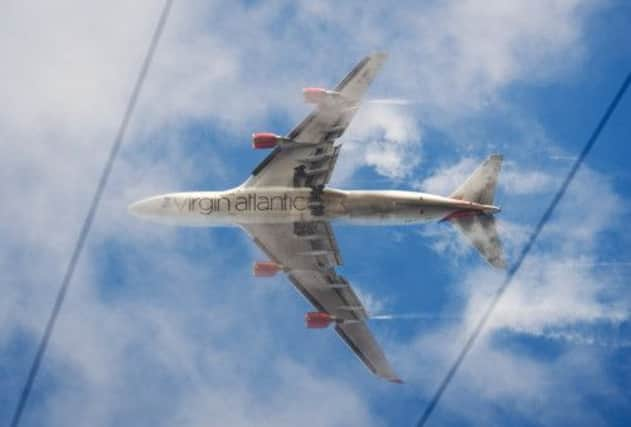Virgin’s Little Red passengers shun onward flights


Early indications were that more passengers on flights from Manchester to Heathrow were flying on to other destinations, but three in four of those flying from Aberdeen and Edinburgh were remaining in the UK.
The new services, launched at the end of March and early April, replaced flights operated by Bmi following its take-over by British Airways and gave Virgin key slots at Heathrow where it hoped passengers would opt for onward journeys.
Advertisement
Hide AdAdvertisement
Hide AdBut Virgin said 27 per cent of passengers using its newly-launched Little Red service were connecting to long-haul services.
A spokeswoman said the carrier is picking up a lot of connecting leisure passengers from Manchester, while travellers from Aberdeen and Edinburgh were tending to end their journeys in London.
However, she said services from Aberdeen were proving popular among those working in the oil and gas sector who wanted to connect to onwards flights across Africa and the US.
She said: “It takes time for an airline to get going – after six weeks it’s still in its infancy, and we’re seeing some healthy loads, especially from Edinburgh.
“We’re also seeing a lot more than we expected in terms of weekend breaks, particularly from Aberdeen.”
The figures emerged as Virgin Atlantic said tough economic conditions over the last year and lower demand for business travel caused by the London Olympics dragged it to a wider annual loss. The airline, founded by Sir Richard Branson, reported a loss of £93 million for the year to the end of February, 16 per cent worse than the £80m loss a year earlier.
“Last year saw a double dip recession, a continued weak macro economy, and an Olympic Games which, although a fantastic event, severely dented demand for business travel,” said chief executive Craig Kreeger, who joined Virgin earlier this year from American Airlines.
European carriers such as IAG’s Iberia, Lufthansa and Air France-KLM are slashing jobs and shelving growth plans as they grapple with high fuel prices, a weak economy and fierce competition from low-cost carriers and Middle East airlines.
Advertisement
Hide AdAdvertisement
Hide AdKreeger said he was confident the airline’s financial performance would improve “considerably” in 2013-14 and that it would return to profit in the second quarter of 2015.
Late last year US carrier Delta Air Lines bought a 49 per cent stake in Virgin Atlantic, creating a joint venture that the pair said would generate new revenue and leverage Virgin’s strong luxury brand.
Branson retained his 51 per cent stake in Virgin Atlantic and ownership of the brand of the airline he founded in 1984.
Revenue increased by 5 per cent to £2.87 billion as 5.5 million passengers flew with the airline, 188,000 higher than last year. At a group level, Virgin Atlantic’s pre-tax loss was £69.9m after a one-off positive £35.4m exceptional item and £23.1m in other income was taken into account.